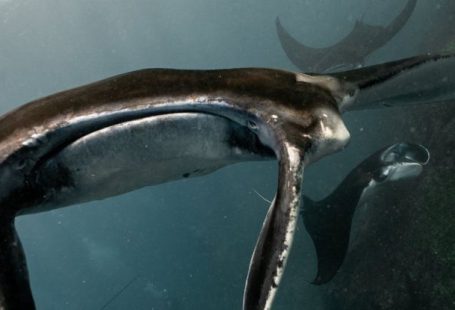Climate change is a pressing issue that is having profound impacts on the world’s oceans. As global temperatures rise, the oceans are experiencing significant changes that are affecting marine life, ecosystems, and coastal communities. In this article, we will explore the various effects of climate change on the ocean and the implications for the future.
Warming Waters and Coral Bleaching
One of the most noticeable effects of climate change on the ocean is the warming of sea temperatures. As the planet heats up, so do the oceans, leading to a phenomenon known as coral bleaching. Coral reefs are highly sensitive to changes in temperature, and when the water becomes too warm, the corals expel the algae living in their tissues, causing them to turn white. This process, known as coral bleaching, can have devastating effects on marine ecosystems as it disrupts the delicate balance of life within coral reefs. Without the algae, corals are more susceptible to disease and have a reduced ability to recover from stress, ultimately leading to widespread coral die-offs.
Rising Sea Levels and Coastal Erosion
Another consequence of climate change on the ocean is the rise in sea levels. As global temperatures increase, glaciers and ice caps melt, adding more water to the oceans and causing sea levels to rise. This rise in sea levels has serious implications for coastal communities around the world. Low-lying areas are particularly vulnerable to flooding and erosion, putting homes, infrastructure, and livelihoods at risk. Coastal erosion can also lead to the loss of important habitats such as mangroves and salt marshes, which provide critical protection against storm surges and support a diverse range of marine life.
Ocean Acidification and Marine Life
In addition to warming waters and rising sea levels, climate change is also contributing to ocean acidification. The increased levels of carbon dioxide in the atmosphere are being absorbed by the oceans, leading to a decrease in the pH of seawater. This acidification has a detrimental impact on marine life, particularly on organisms that rely on calcium carbonate to build their shells and skeletons, such as corals, mollusks, and some plankton species. As the acidity of the water increases, these organisms struggle to form and maintain their calcium carbonate structures, making them more vulnerable to predation and environmental stressors. This disruption in the marine food chain can have cascading effects on the entire ecosystem, impacting fish populations and marine biodiversity.
Extreme Weather Events and Ocean Circulation
Climate change is also influencing the frequency and intensity of extreme weather events, such as hurricanes, typhoons, and storm surges. These events can have far-reaching effects on the ocean, including increased sedimentation, nutrient runoff, and disruptions to ocean circulation patterns. Changes in ocean circulation can alter the distribution of nutrients and heat within the water column, affecting marine ecosystems and the productivity of fisheries. Additionally, extreme weather events can cause physical damage to coral reefs and other marine habitats, further exacerbating the already fragile state of the ocean.
Adaptation and Mitigation Strategies
Despite the challenges posed by climate change, there are actions that can be taken to mitigate its effects on the ocean. Implementing sustainable fishing practices, reducing carbon emissions, and protecting marine habitats are all crucial steps in preserving the health of the ocean. Governments, industries, and individuals all have a role to play in addressing climate change and safeguarding the future of our oceans. By working together to combat climate change, we can help ensure a healthy and thriving ocean for generations to come.





